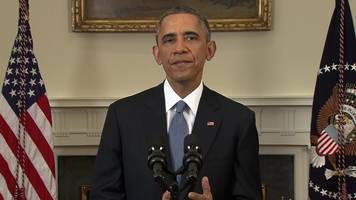If President Barack Obama is ever to take control of his foreign policy – and move the United States into a more peaceful and pragmatic direction – he will need to shake his obsession with secrecy and bring the American people into his confidence by sharing with them information about key events that have shaped recent crises.
Right now, the American people are deeply confused about what is transpiring in the Middle East and eastern Europe — and Obama appears satisfied that they stay that way. He doesn’t seem to understand that one of the president’s greatest advantages is his power to release information to the public, thus changing the narrative as written by rival political forces and forcing those forces to adjust to a more complete storyline.
Instead, Obama has behaved as if he’s still trying to prove to the national security establishment that he can hoard secrets as compulsively as anyone, that he’s not the wild-eyed radical outsider that the Right has made him out to be. At a news conference on March 24, Obama even made a joke about his record of keeping the American people in the dark about information developed by the U.S. intelligence community.
“As a general rule, I don’t comment on intelligence matters in a big room full of reporters,” Obama said with a smirk on his face. “And I think I’ll continue that tradition.”
But Obama’s lack of transparency – after promising in 2008 to run a transparent administration – has left him at the mercy of Washington’s closed club of insiders, while alienating him from the broad American public. With neoconservatives and other opinion leaders dictating the dominant narrative on topic after topic, Obama has ended up reacting to events, not controlling them.

